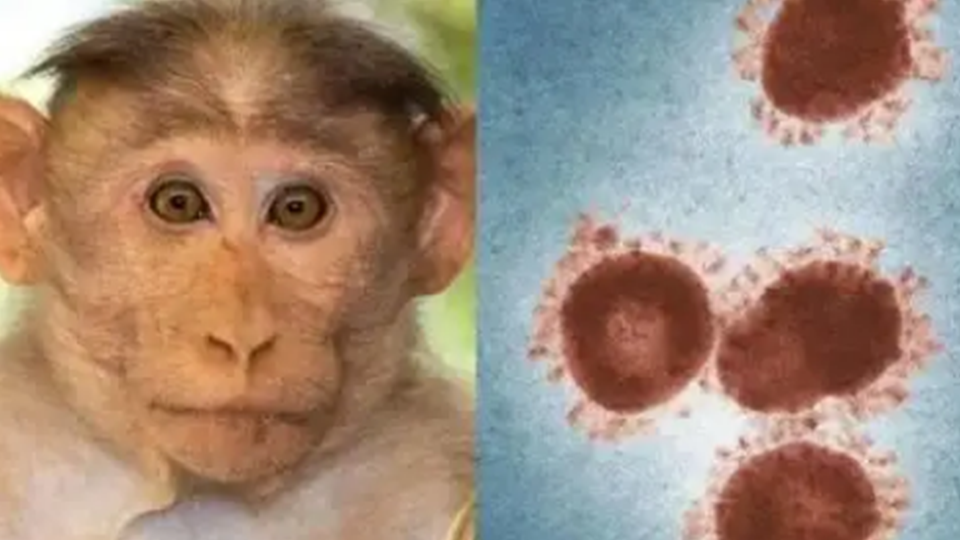
Is the hot monkeypox virus on the Internet terrible? How to prevent monkey pox? Since May this year, there has been more and more information about the outbreak and epidemic of monkeypox virus, which has also caused heated discussions and concerns among many netizens.
According to official figures released by WHO, as of May 21, WHO has received 92 laboratory-confirmed monkeypox cases and 28 suspected cases in non-foci of the disease countries in 2022, with no deaths yet. Countries where cases have been detected include the UK, Belgium, Spain, Portugal, Canada, France, Australia, Germany, Italy, the Netherlands, Sweden and the United States. According to official information, more cases are expected to be found in the future.
1. Whatis monkeypox?
Whatis monkeypox? Monkeypox is a pre-existing disease that is zoonotic. Unlike COVID-19, monkeypox disease is not an emerging infectious disease. Compared with the COVID-19, monkeypox disease requires more conditions to achieve transmission, so it is less efficient.
Its pathogen is monkeypox virus, which belongs to the same genus of Orthopoxvirus as smallpox virus. Since the eradication of smallpox in the world in 1980, monkeypox has spread in parts of Africa considered to be the most important orthopoxviruses facing humans.
Unlike the Covid-19 and other RNA viruses that are prone to mutation, monkeypox is an enveloped double-stranded DNA virus with a relatively stable genome and a slow mutation rate. It is divided into the Central African (Congo Basin) branch and the West African branch, where the African (Congo Basin) branch kills up to 10% of those infected in Africa and is thought to be more likely to spread. This European-wide monkeypox outbreak, initially analyzed as a West African strain, had a case fatality rate of about 1% in past outbreaks.
2. What is the source of infection of monkeypox? How is it spread?
Monkeypox patients and animals infected with monkeypox virus are the main sources of infection of monkeypox. At present, monkeys are not considered to be the reservoir hosts for monkeypox virus, and rodents in Africa may be important reservoir hosts. Animals that can be infected with monkeypox include woodchucks, gambian squirrels, tree squirrels, striped squirrels, striped mice, rabbits, dormouse, and porcupines.
Human-to-human transmission of monkeypox can occur, but it is less efficient. It is usually spread mainly through contact with the patient's lesions or clothes, bed sheets, etc. It can also be spread through respiratory droplets, but this usually occurs only with prolonged, face-to-face contact.
3. What are the monkeypox symptoms?
The incubation period for monkeypox virus is usually 6-13 days, but may be 5-21 days. So what is the monkeypox symptoms in humans? Infected human monkeypox people experience fever, headache, and swollen lymph nodes, which can occur in the neck, armpit, or groin on either side or on one side of the body. A monkeypox rash followed. The monkeypox rash usually starts on the face and then spreads to other parts of the body. The rash progresses from macules, papules, vesicles to pustules and lasts for a week or so before scabbing. Once all scabs fall off, the infected person is no longer infected Contagious. Most infected people recover within 2-4 weeks without special treatment.
4. How to prevent monkeypox?
Confirmed patients need to be isolated to avoid infecting others.
The general population does not touch the skin and body fluids of patients who may have monkeypox, and does not touch the patient's contaminated clothing, towels and bedding, which are effective measures to prevent infection by the patient.
Keeping distance in crowded places, wearing masks and washing hands frequently, avoiding contact with wild animals, especially sick or dead animals, and not eating undercooked meat products will also reduce the risk of infection.
5. Is there a vaccine for monkeypox?
According to information released by the WHO, the effectiveness of the smallpox vaccine to prevent monkeypox is about 85%. People who have been vaccinated against smallpox usually have milder monkeypox symptoms. In 2019, a newer vaccine based on a modified attenuated vaccinia virus (the Ankara strain) was approved to prevent monkeypox. However, most countries have stopped the production and stockpiling of smallpox vaccine, and the newly developed monkeypox vaccine has not been used on a large scale.
6. Is there a cure for monkeypox?
Monkeypox is usually self-limiting and requires no special treatment. One of the drugs currently used for severe monkeypox treatment is tecovirimat, an antiviral drug used to treat smallpox, which received European Medicine in 2022 based on data from animal and human studies Association (EMA) licensed for monkeypox, but not yet widely used.
7. Is monkeypox the same as chickenpox?
Chickenpox is a completely different disease from monkeypox. The causative agent of chickenpox is "varicella-zoster virus", which belongs to the family Herpesviridae, and humans are the only host of this virus. Also, chickenpox can be prevented by getting the chickenpox vaccine.
8. Monkeypox virus and smallpox virus are both orthopoxviruses, so are monkeypox and smallpox the same?
The clinical manifestations of monkeypox are similar to those of smallpox, but the fatality rate of smallpox is as high as 30%, and the disease progresses rapidly. Compared with smallpox, monkeypox is much milder, and its mortality is low. Although the monkey rash looks terrible, monkeypox is self limiting for most people, but children, pregnant women or immunosuppressed people may have serious conditions, which still need close attention.


